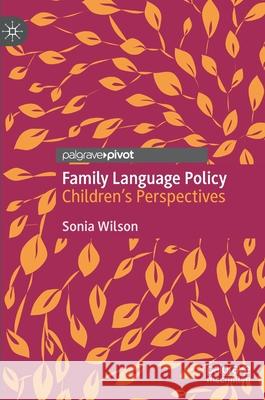Family Language Policy: Children's Perspectives » książka
topmenu
Family Language Policy: Children's Perspectives
ISBN-13: 9783030524364 / Angielski / Twarda / 2020 / 200 str.
Kategorie:
Kategorie BISAC:
Wydawca:
Palgrave MacMillan
Język:
Angielski
ISBN-13:
9783030524364
Rok wydania:
2020
Wydanie:
2020
Ilość stron:
200
Waga:
0.41 kg
Wymiary:
21.01 x 14.81 x 1.42
Oprawa:
Twarda
Wolumenów:
01
Dodatkowe informacje:
Wydanie ilustrowane











